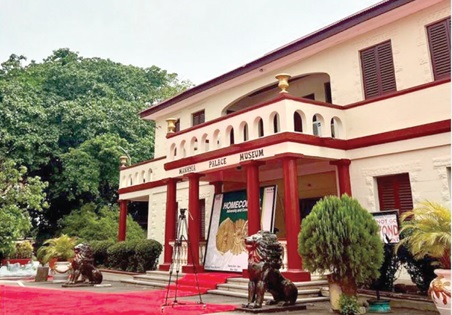
In the cultural heartbeat of Kumasi — the historic capital of the Ashanti Kingdom — stands the Manhyia Palace Museum, a living legacy of royal power, pride, and tradition. This elegant and revered site offers a deep dive into the Ashanti people's remarkable history, one of Africa’s most influential pre-colonial empires.
Originally built in 1925 by the British as a residence for Asantehene Prempeh I upon his return from exile, the palace was later converted into a museum in 1995 to preserve and share the royal heritage of the Ashanti. Today, the Manhyia Palace Museum serves as both a historical archive and an active symbol of cultural identity, where the traditions of the past meet the present.
Visitors to the museum are welcomed with a guided tour that brings to life the centuries-old traditions of Ashanti royalty. Inside, you'll find an impressive collection of royal regalia, including ceremonial stools, war drums, gold jewelry, palanquins, traditional kente cloth, and personal effects of past Ashanti kings and queens. Each artifact tells a story, of governance, resistance, diplomacy, and spiritual power.
Among the most captivating features is the throne room, carefully preserved with its original furnishings, offering a rare glimpse into the lifestyle of Ashanti royalty during the colonial and post-independence eras. Audio and visual displays enhance the storytelling, featuring historical footage and interviews with royals and elders.
The museum also plays an active role in educating Ghanaians and international visitors alike about Ashanti customs, such as the Akwasidae Festival, the role of the Golden Stool, and the continued influence of traditional leadership in modern governance.
Set in beautifully maintained grounds, with traditional architecture and serene gardens, the museum is adjacent to the new Manhyia Palace, the current residence of the Asantehene, making the site not just historical, but vibrantly alive with cultural relevance today.
A visit to the Manhyia Palace Museum is more than a history lesson, it's a journey into the soul of the Ashanti nation, and an essential stop for anyone wanting to understand Ghana's cultural foundation and royal legacy.
